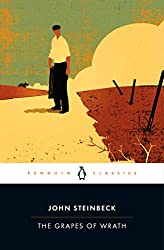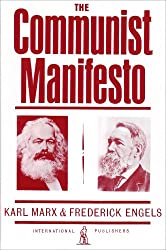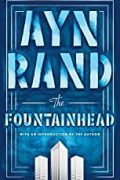
Rating: 8.8/10.
Summary
Classic American novel by John Steinbeck, set in the Great Depression. It follows the story of the Joad family, originally they owned a farm in Oklahoma, but after crop failures in the dust bowl, they lost their farm. Hearing of greener pastures out west in California, they pack up all their belongings and set out in a jalopy (barely functional truck). Several family members die or leave along the way. When they get to California, there’s too much labor and they have trouble finding work, and their conditions get worse and worse as they run out of money.
The main protagonist is Tom Joad: at the beginning of the novel, he is released from jail as he killed a man in a fight. Ma becomes the backbone of the family and take the most responsibility, while the men (Pa and Uncle John) are rather weak and helpless. Rosasharn is the pregnant sister, but her husband deserts her in the middle. Al is a younger brother who likes cars and girls; there are also two smaller siblings who are still kids. Finally, Casy is a preacher who gave up his religion some time ago, and came along for part of the ride.
The book switches back and forth between long chapters about the Joad family and shorter chapters told in general, nameless events. This serves to illustrate that the Joad family’s situation is not unique, but similar events are playing out across thousands of families, who all suffered a great deal during the depression.
Themes
A strong recurring theme is the cruelty of capitalism. The bank only cares about profits, it does not care that plowing down a house makes its occupants homeless. Unregulated capitalism produces situations where a family can work for a day picking peaches and the money is not even enough to buy a meal. It’s willing to destroy good food while starving people watch, just to keep prices up. Poor people help each other more than the rich, who always exploit the migrants for profit.
At the same time, it’s hard to point to any individual at fault (except perhaps the super-wealthy with a million acres of land). Everybody is doing whatever they can to earn money and survive, even if it means destroying the livelihoods of their fellow countrymen. The landowners are not much better off, as they’re struggling to make a profit and many are driven to ruin by even bigger farms. It’s more of a systemic failure that such unfairness is allowed to happen; at the end, the whole system is at the verge of rebellion as desperate men, unable to find work, can only steal or revolt to avoid starvation.



